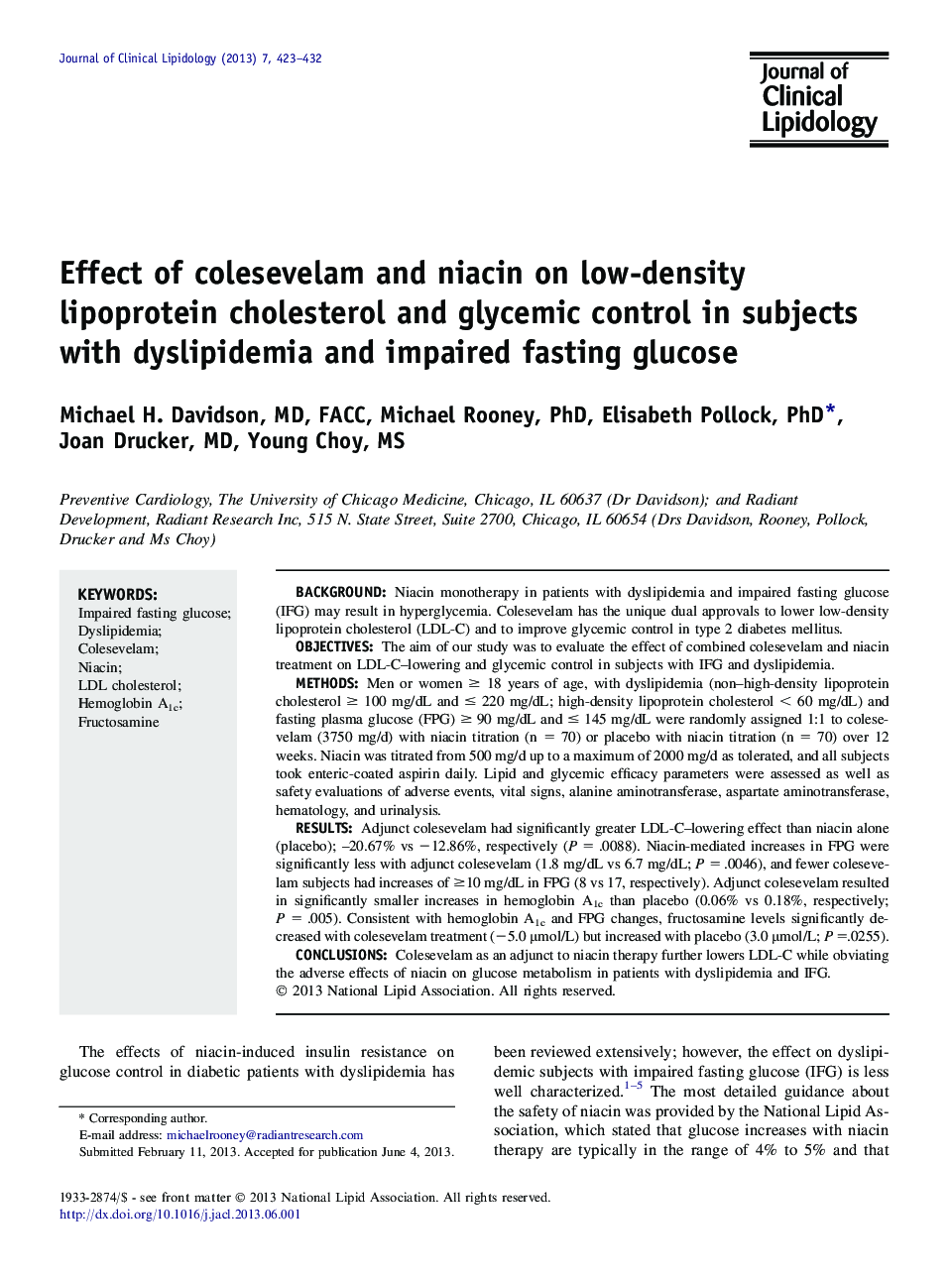| Article ID | Journal | Published Year | Pages | File Type |
|---|---|---|---|---|
| 5986083 | Journal of Clinical Lipidology | 2013 | 10 Pages |
BackgroundNiacin monotherapy in patients with dyslipidemia and impaired fasting glucose (IFG) may result in hyperglycemia. Colesevelam has the unique dual approvals to lower low-density lipoprotein cholesterol (LDL-C) and to improve glycemic control in type 2 diabetes mellitus.ObjectivesThe aim of our study was to evaluate the effect of combined colesevelam and niacin treatment on LDL-C-lowering and glycemic control in subjects with IFG and dyslipidemia.MethodsMen or women ⥠18 years of age, with dyslipidemia (non-high-density lipoprotein cholesterol ⥠100 mg/dL and ⤠220 mg/dL; high-density lipoprotein cholesterol < 60 mg/dL) and fasting plasma glucose (FPG) ⥠90 mg/dL and ⤠145 mg/dL were randomly assigned 1:1 to colesevelam (3750 mg/d) with niacin titration (n = 70) or placebo with niacin titration (n = 70) over 12 weeks. Niacin was titrated from 500 mg/d up to a maximum of 2000 mg/d as tolerated, and all subjects took enteric-coated aspirin daily. Lipid and glycemic efficacy parameters were assessed as well as safety evaluations of adverse events, vital signs, alanine aminotransferase, aspartate aminotransferase, hematology, and urinalysis.ResultsAdjunct colesevelam had significantly greater LDL-C-lowering effect than niacin alone (placebo); -20.67% vs â12.86%, respectively (P = .0088). Niacin-mediated increases in FPG were significantly less with adjunct colesevelam (1.8 mg/dL vs 6.7 mg/dL; P = .0046), and fewer colesevelam subjects had increases of â¥10 mg/dL in FPG (8 vs 17, respectively). Adjunct colesevelam resulted in significantly smaller increases in hemoglobin A1c than placebo (0.06% vs 0.18%, respectively; P = .005). Consistent with hemoglobin A1c and FPG changes, fructosamine levels significantly decreased with colesevelam treatment (â5.0 μmol/L) but increased with placebo (3.0 μmol/L; P =.0255).ConclusionsColesevelam as an adjunct to niacin therapy further lowers LDL-C while obviating the adverse effects of niacin on glucose metabolism in patients with dyslipidemia and IFG.
